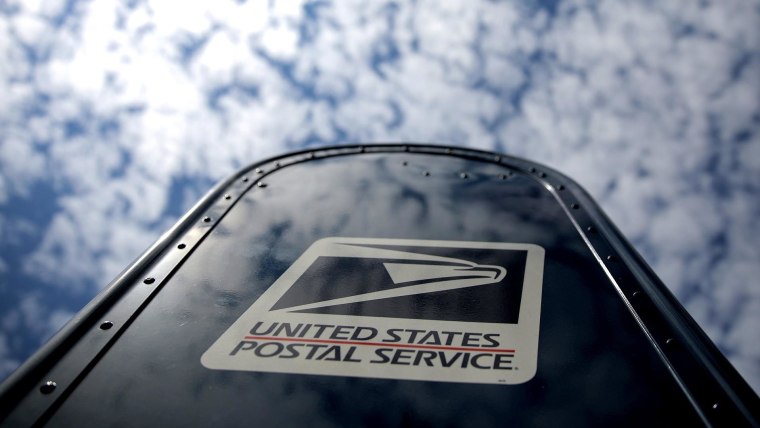Josh Dubose did not intend to become a mail carrier. Although his father, his stepmother, his sister and at least three uncles worked for the U.S. Postal Service, Dubose saw something different for himself.
Yet 16 years into his career, he delivers mail in Prince George’s County, Maryland. In his long ties to the Postal Service, Dubose and his family represent a small slice of the nearly 21 percent of postal workers who are Black, according to the Postal Service. And those workers are waiting to learn their fates as the federal government weighs sweeping changes to the mail system that could cut jobs and services.
Postmaster General Louis DeJoy recently said he would postpone plans to decrease the number of postal workers and make other cuts until after the election, following swift backlash. Still, the proposed cuts could affect the livelihoods of a lot of Black people.
“This isn’t the first time I heard about concern for a lack of funding,” Dubose said. “This feels different, though. At the same time, it always gets funded. So I’m taking the same approach — we will be all right.”
Despite DeJoy’s decision to postpone his cuts, financial issues have been a concern within the Postal Service for years, and the quantity of letters has drastically diminished while the volume of package delivery has risen during the coronavirus pandemic.
Philip F. Rubio, a history professor at North Carolina A&T State University, wrote the book “There’s Always Work at the Post Office: African American Postal Workers and the Fight for Jobs, Justice, and Equality,” published in 2010.
Not only has the post office “been vital to Black community development, but Black postal worker activism changed the Post Office and its unions,” Rubio wrote. “This is a dynamic history, one that involves narratives of migration, militancy, community, and negotiation — and all at a workplace that African Americans saw as being inclusively, not exclusively, theirs.”
A 1949 Ebony magazine article said Black postal workers had earned “community prestige” with secure, reliable jobs that benefited their neighborhoods.
Slowly, that status for the Black carrier has diminished, according to some of the postal workers who spoke to NBC News. But they maintain that their commitment persists, even during a pandemic and at a time when their health and paychecks are in jeopardy.
Another postal worker who spoke with NBC News but did not want to be identified said their work can be a threat to their personal safety and now their health because of the COVID-19 pandemic, and yet mail carriers have not stopped working, despite the movement to scale down Postal Service.
Jay Thurmond, 46, a postal worker in Chicago, said he is bothered by the Postal Service’s being tossed around like a political football, especially because of the way it dismisses Black workers.
“It’s a tactic,” said Thurmond, a mail handler in Chicago for 25 years. “The Postal Service has been around forever, and we have a system, and it works.”
He added, “It’s more than work. It’s a service. When your baby needs something or our troops in Afghanistan need something, you can trust the postal system. But you can’t trust us with ballots? It doesn’t make sense.”
Democrats passed a $25 billion bill for Postal Service in the next coronavirus recovery bill over the weekend to help address those concerns, but the actions from the top tell a story of undercutting the Postal Service’s ability to function at full capacity.
In the heat of this battle, which places their jobs in a tenuous situation, Black postal workers insist that their focus remains on the work.
Dubose said the commitment to emptying their trucks is strong, especially in communities of color.
“It was supposed to be a temporary job, but I’m still here, and it’s a job I do with pride,” he said. “It’s not easy. We load our trucks each morning and we work until all the mail is delivered. That’s why you sometimes see carriers working at night — sometimes not in the safest neighborhoods. But if people trust us with their bills, birthday cards, packages, I don’t see why a ballot would be any different. We will deliver what’s on the truck.”












